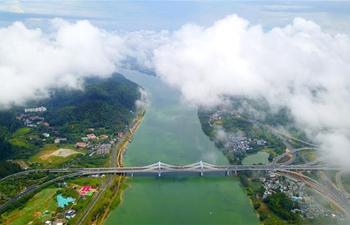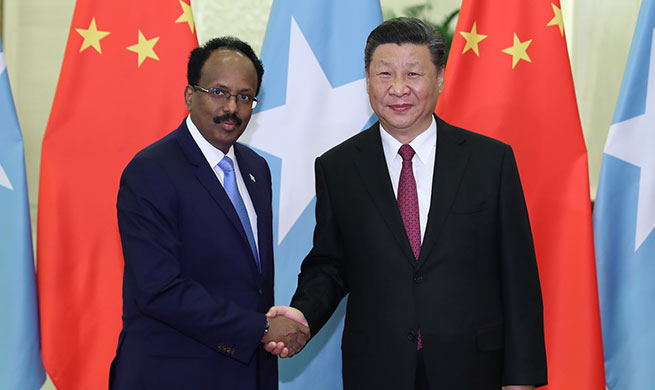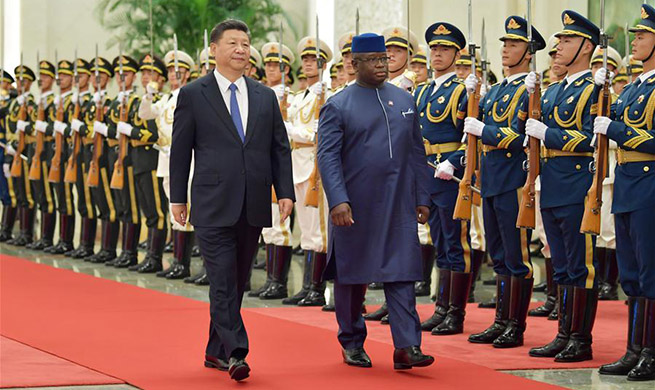TOKYO, Aug. 31 (Xinhua) -- Japan's Defense Ministry on Friday requested a record budget of 5.3 trillion yen (47.6 billion U.S. dollars) for the next fiscal year starting in April 2019, with the request marking a 2.1-percent increase from the initial budget for the current fiscal year.
The ministry's request includes allocations to acquire the Aegis Ashore land-based missile defense system, with two units to be installed over a five-year period from fiscal 2019.
The ministry is asking 235.2 billion yen (2.12 billion U.S. dollars) for the systems, less than initial calculations, as spending initially required for the missile defense system to take down cruise missiles has currently been put on hold.
The ministry has also requested 81.8 billion yen (738 million U.S. dollars) to buy a range of interceptor missiles. These comprise next-generation SM-3 Block 2A missiles.
From a total of 424.4 billion yen (3.83 billion U.S. dollars) allocated by the ministry for missile defense, 7.5 billion yen (67.68 million U.S. dollars) will cover costs to upgrade Maritime Self-Defense Force destroyers so they can launch the SM-3 Block 2A's.
The Defense Ministry also plans to bolster its capabilities in outer space and cyber space. The ministry has asked for 3.8 billion yen (34 million U.S. dollars) for a system to preempt possible cyberattacks and 26.8 billion yen (241 million U.S. dollars) for a radar system to monitor activity within the Earth's orbit.
Following a scandal involving the cover-up of highly-sensitive activity logs for Japan's Ground Self-Defense Force members conducting a UN peacekeeping mission in South Sudan, the ministry has budgeted 55.8 billion yen (503 million U.S. dollars) for a cloud-based, artificial intelligence-equipped system to handle sensitive documents.
Japan's Defense Ministry also plans to acquire six more fifth-generation F-35A stealth fighter jets, one of the Pentagon's most expensive weapons systems, with each jet potentially costing around 13 billion yen (120 million U.S. dollars).
In addition, it also plans to upgrade its current mainstay F-15 fighters to carry cruise missiles with a range of 900 km, the ministry said.
In terms of the ministry's mid-to-longer term plans, in its latest Annual White Paper released this week it set forth its plans to "steadily build up its defense capability."
Referring to Japan's security situation as "severe" despite the recent thaw in regional tensions and historic developments made regarding the Korean Peninsula, the ministry said its increased expenditure under such a "severe" security environment is to "strengthen the posture for protecting the life and property of the Japanese people as well as Japan's territorial land, sea, and airspace."
The overall budget request on Friday, to be assessed by the Finance Ministry and adjusted as necessary and submitted to the Cabinet Office for approval by the end of the year, will likely see Japan's outlays on defense spike for a seventh successive year and mark a fifth record yearly high under Prime Minister Shinzo Abe.











